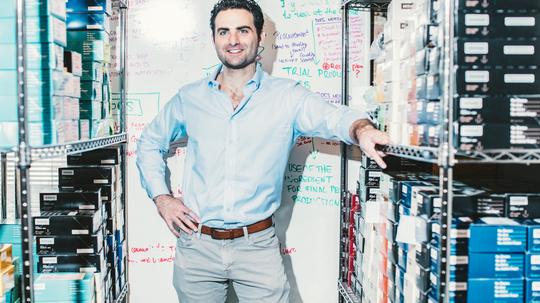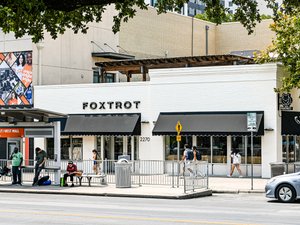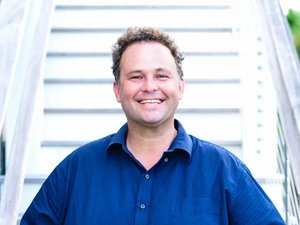
Launching a startup and raising venture capital have nearly become one in the same. Many founders will say that it’s almost impossible to launch and scale a company without outside financing, especially if they want to grow it quickly.
Venture capital can do many things for a startup, like give it cash to hire dozens of people within months and launch massive marketing campaigns. But what does it take away from startups and their founders? Board seats, autonomy and equity, which has an impact on the amount of cash founders take home when their startup is acquired or goes public.
Like many other tech hubs around the country, Chicago’s startups are constantly raising new financing rounds. In 2018, local tech funding topped $1.8 billion.
But even within today's hyper-funding culture, some startups have opted to bootstrap in the Windy City, which was named the "best big city" to bootstrap in by San Francisco-based equity firm Mainsail Partners. Chicago earned the title because it has the benefits of a large city while also providing a lower cost of living than places like New York or Los Angeles.
RXBAR, the popular protein bar maker that was acquired by Kellogg for $600 million in 2017, is one of the few examples of a successfully bootstrapped Chicago startup. Though the company took a convertible note, it didn’t raise any VC funding, said RXBAR co-founder Peter Rahal, who recently stepped down from CEO to take on more of a “founder’s role.”
“Our intention was to build a self-reliant, profitable business,” he said.
To make RXBAR profitable early on, Rahal and his co-founder Jared Smith eliminated as much overhead spending as they could. The two founders made the bars in Rahal’s parents' basement as opposed to paying rent in a downtown office building or paying manufacturers to make the product.

Additionally, they originally did all the selling themselves, strategically visiting cross-fit gyms and asking people to try the product. When the topic of funding came up in RXBAR's early days, Rahal remembers his father saying, "You guys need to shut the fuck up and just sell a thousand bars."
The founders were doing a tremendous amount of the grunt work at the time and weren't getting paid a tech founder salary either, he says.
“There are sometimes early on when [VC] could have been helpful,” Rahal said. “I remember being broke. Raising money would have allowed for a better salary for Jared and I, but equity is all you have, so protecting it is really important.”
Unlike most startups, RXBAR’s cash flow was positive just four months after launching. Now under Kellogg, RXBAR employs 200 people in a new River North headquarters, and Rahal says the company continues to grow domestically and internationally.
Runtime Verification, founded in 2011 and based in Urbana, is building technology that identifies problems in a company’s software. Since launching, Runtime has grown only on revenue made from its business contracts. It now employs a team of 30.
"equity is all you have, so protecting it is really important."
“We didn’t need any venture investments,” Runtime CEO Grigore Rosu told Chicago Inno earlier this year. “Those contracts gave us enough funding to set up our operations and pay for everything we needed.”
Similarly, cleverbridge, an e-commerce and subscription billing platform, has also supported itself through revenue since its inception. Founded in 2005, the tech company now employs 300 people. Company spokesperson Kyle Shamoria wouldn’t disclose revenue numbers but said “we do consider ourselves a profitable company.”
One of Chicago's loudest proponents of bootstrapping is Jason Fried, the founder and CEO of Chicago tech company Basecamp.
“I don’t want to be obligated to somebody else who’s wealthier than I am to do what they want me to do,” he said. “I didn’t get into business to essentially go work for somebody else.”
Basecamp, which Fried co-founded in 1999 with Ernest Kim and Carlos Segura, makes a project management tool for businesses. In 2006, Amazon Founder and CEO Jeff Bezos bought a small piece of the company directly from the founders. But because it was more of a small acquisition than an investment, Bezos doesn’t have any decision-making power in Basecamp.

From inception, Fried said he fundamentally made the decision to not raise any venture capital and instead focused on being profitable on day one. He said Basecamp was able to earn enough revenue early on because it began as a consulting business. As Basecamp’s business changed to more of a web application development company, Fried tried to grow it as mindfully as possible.
“We stayed as small as we possibly could and continue today to stay as small as we possibly can,” Fried said. “We’ve never ever hired somebody we couldn’t afford. We’ve never spent on anything we couldn’t afford to pay.”
Now Basecamp employs 55 people and has 100,000 enterprise customers. Fried declined to disclose Basecamp’s revenue numbers, but said the company generates “tens of millions of dollars” in annual profits.
“Make more money than you spend and don’t get ahead of yourself,” Fried said. “It sounds so ridiculously obvious and simple, but people get very carried away because they want to be the next Amazon, the next Facebook, the next Uber—the next whatever.”
“I didn’t get into business to essentially go work for somebody else.”
And the desire to scale quickly, edge out competition and become the next big tech company can result in a lot of waste. It happens on every level of the startup industry, ranging from early-stage startups to tech behemoths like Uber and WeWork, which have both raised enormous amounts of funding and lost $1.8 billion and $1.9 billion in 2018, respectively.
“The reason to take venture capital is usually when a business has really big potential and will be profitable in the long run, but in the short term, needs capital to get to that point,” said Victor Gutwein, managing partner at Chicago-based venture capital firm M25. “But most businesses don’t need to take venture capital. It’s relatively rare in the grand scheme of things that you actually need venture capital.”
Chicago parking and transportation tech company Arrive, formerly known as ParkWhiz, bootstrapped for the first six years it was operating. It wasn’t until 2012 that it raised its first round of funding, the same year that its local competitor SpotHero raised a seed round. Now Arrive has raised $61 million to date since launching in 2006. SpotHero has raised $67 million.
Yona Shtern, who replaced Arrive’s co-founder Aashish Dalal as CEO last year, said Arrive didn’t entirely raise the money in reaction to SpotHero or other competitors, but did because it was the only way to quickly expand the startup’s service nationwide. He also said Arrive was “marginally profitable to break even” before it began raising VC.

“In the early stages, [Dalal] was focused on developing a proof of concept,” Shtern said. “He wanted control over all the decisions around the future of the business as he continued to evolve it. But had he not raised capital, the most likely scenario is he would have remained a very small, local or regional, technology solution.”
Arrive now employs 200 people across its Chicago, Tel Aviv and Philippines offices, and Shtern said the company is “very close” to becoming profitable.
In 2018, startup and tech companies in the U.S. collectively raised an all-time high of $130.9 billion, surpassing what was raised during the dot-com era, according to PitchBook. The VC boom can be primarily attributed to a strong economy, but some experts are predicting a recession by 2021, which could dry up much of the cash available to startups. If the economy takes a turn, startup and tech companies that have built businesses by relying on VC could seriously suffer.
“You’re basically promising to build a rocket ship, and to achieve orbit or die trying.”
“There’s a sentiment for founders and VCs that the market is good, so you should raise money right now because you don’t know what’s going to happen in the future,” Gutwein of M25 said. “But we should be cautious about making sure our business models can be profitable.”
Although venture capital remains one of the top choices for startup founders looking to fund their businesses, alternative financing options are becoming more popular, too. Founders are looking to organizations like Salt Lake City-based Indie.VC, which says it invests in startups that are focused on profitability instead of growth, and allows them to pay back their investments through profit rather than money earned through acquisitions and IPOs.
Local startup Tapster, which manufactures robots to test touch screens, raised a $100,000 convertible note from Indie.VC in 2015, said the startup’s Founder and CEO Jason Huggins. Huggins isn’t fundamentally against venture capital, but said he isn’t ready to make the commitment to investors that would be required.
“When you take venture capital, you’re signing up for a whole set of expectations,” he said. “You’re basically promising to build a rocket ship, and to achieve orbit or die trying.”

Though Huggins isn’t in a rush to raise venture capital for Tapster, he has raised money before. Huggins is the co-founder of Sauce Labs, a San Francisco-based tech company that raised more than $150 million, according to Crunchbase.
“The first time around, I didn’t quite know the implications of taking all that money,” Huggins said. “With Tapster, I’m being very [careful] about how I’m growing the company.”
Other similar financing methods to Indie.VC include Earnest Capital and Tiny Seed, which describes itself as the “first startup accelerator designed for bootstrappers.” Plus, more and more startups are turning to crowdfunding platforms like Kickstarter.
Despite how startups choose to fund their businesses, RXBAR’s Rahal, who remains one of Chicago’s most notable bootstrapping entrepreneurs, says founders should focus on building strong and sustainable business models. Regardless of how a business is funded along the way, it won’t mean much if it’s not profitable.
“For an entrepreneur, it is a huge milestone to finance your business,” he said. “But don’t over celebrate it, because there’s still a shitload of work to do.”








